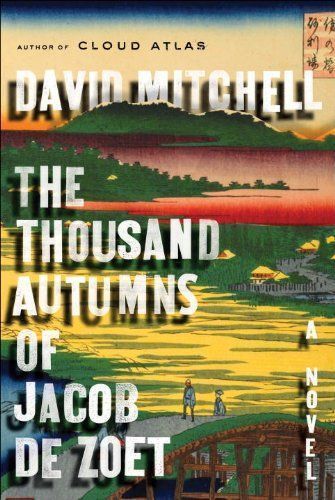
The Thousand Autumns of Jacob de Zoet
**Pre-order UTOPIA AVENUE, the spectacular new novel from David Mitchell.** The Sunday Times Number One Bestseller, from the author of CLOUD ATLAS and THE BONE CLOCKS. Longlisted for the Man Booker Prize 2010 'Brilliant' - The Times 'A masterpiece' - Scotsman Be transported to a place like no other: a tiny, man-made island in the bay of Nagasaki, for two hundred years the sole gateway between Japan and the West. Here, in the dying days of the 18th-century, a young Dutch clerk arrives to make his fortune. Instead he loses his heart. Step onto the streets of Dejima and mingle with scheming traders, spies, interpreters, servants and concubines as two cultures converge. In a tale of integrity and corruption, passion and power, the key is control - of riches and minds, and over death itself. 'Confirms Mitchell as one of the more fascinating and fearless writers alive' - New York Times Book Review
Reviews
Nick Gracilla@ngracilla
Mario Menti @mario
Fraser Simons@frasersimons
Eli Alvah Huckabee@elijah
Jane McCullough@janemccullough
Melody Izard@mizard
Miriam Bauer@aster_isk
Daryl Houston@dllh
Christine Liu@christineliu
Les Reynolds@lreynolds
Meg@emvy
Oliver Magnanimous@oliverm
Sara Sunshine@sarasunsh
N.C@quince
Steve Parks@steveparks
Jayme Cochrane@jamesco
Channing Williford@channing
Will Vunderink@willvunderink
Hannah Swithinbank@hannahswiv
Kyle Curry@kcurry24
Jeff Roche@jeffroche
Klaus Eck@klauseck
Pierke Bosschieter@pierke
Georgi Mitrev@gmitrev
Highlights
Eli Alvah Huckabee@elijah
Page 347